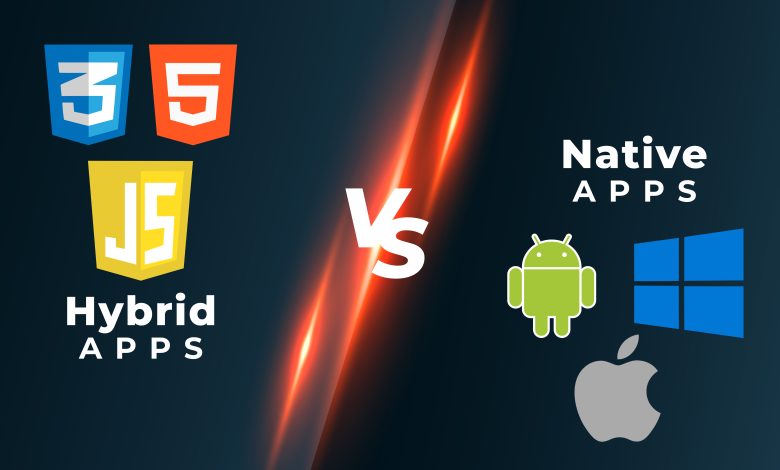Native Apps VS Hybrid Apps

App development today has changed the dynamics of the business world. Organizations, whether small or large scale, require app building. Such app building might not be the same for two different types of organizations. Two different companies belonging to different industry sectors might not opt for the same kind of application or same infrastructure. Thus, the debate of Native apps vs Hybrid apps comes into play.
Before discussing the difference between the two apps and their functionalities, we should get to know them separately. Below are their definitions:
What Are Native Apps?
Native apps are programs designed by React Native Developers to run for one specific platform. These applications are accessible for only one separated platform or device. Its usage is only limited to one operating system, and it cannot process further than that. Such a feature allows the application to build a standardized platform for the audience. These apps are backed by the latest technology and ensure fully optimized performance. These apps provide an experience that the users can cherish.
What Are Hybrid Apps?
Hybrid apps work under the shell of native applications. After being downloaded from the app stores, these apps can adapt to smartphone platforms’ capabilities. These apps are a merger of Native and web applications.
Examples Of Native And Hybrid Apps
Most entrepreneurs want this question to be answered as they are always wondering about the examples of the two apps. By analyzing the two applications, business owners can quickly point out what sort of application they would want their developers to build and which application can help them generate their target sales. This debate of native apps vs hybrid apps is quite detailed.
Let’s look at the examples of the two applications. Below are examples of the two applications:
Hybrid App Examples
Hybrid applications are apps coded into a single language but have the functions to run across multiple platforms. For instance, an app working on both Android and iOS operating systems as these hybrid apps can work on multiple platforms. A few examples may include:
- Amazon Appstore
- Uber
- Gmail
Native App Examples
Native apps are usually built for navigation programs and also social apps. developers use React.js Development to build interfaces of such native applications. These apps are also most commonly used in the development of multiple games. Following are examples of Native apps:
- Walmart
- Soundcloud Pulse
- Bloomberg
Difference Between Native And Hybrid Apps
The two apps are quite different; however, the need for these two applications is quite high among today’s business people. Any business that performs an online activity or planning to create an online platform for their businesses gets help from either native or hybrid apps. Now, let’s learn the difference between the two.
Comparative Analysis Of Native Apps Vs Hybrid Apps
- Speed
When we compare the two applications and their functionality, we evaluate that native apps are much faster than hybrid ones. Such a feature gives such apps an edge in the prevailing market as major organizations want their apps to be quick.
- Building Process
Hybrid apps are easy to build as they are developed using a single programming language. On the other hand, native apps are not that used to build. So, as far as development is concerned, hybrid apps are much easier to build.
- Cost Analysis
Native apps take time to develop as a heavy investment backs them. Therefore, these apps are expensive as they require a detailed process. Meanwhile, the hybrid applications are inexpensive as they are not as complex as far as the developing phase is concerned. Hybrid apps do not have to go through a detailed developing process, which is why they are cheaper.
Read this interesting article “Types Of Cloud Security“


